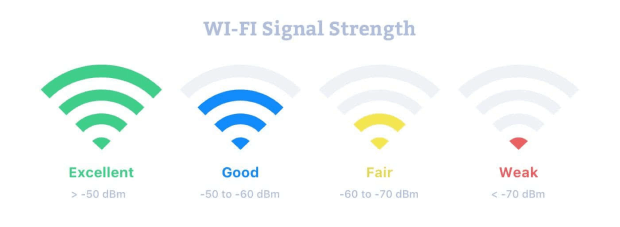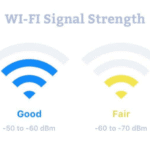
With the eco-elegant flow to a paperless society and the benefit component of receiving and paying bills online, thousands and thousands of people are banking online in recent times. When you spot headlines like “The University of Florida Breach Exposes Nearly 100,000” or “Missing Arkansas Background Records Raise Concerns,” you start to wonder how safe online transactions are. It seems that a complicated society like ours has a lockdown on our private banking records. Do our bank websites have the little lock icons that indicate certain encryption and protection proper?
The security factor seems high until you realize that nearly 10 million Americans were victims of identity fraud in 2008, a 20 percent growth since 2007. With over 2 million private facts, statistics were breached because, in 2005, hundreds of thousands were exposed to the sick effects that being a sufferer of identity theft can have. And similar to you, use the Internet for convenience, thieves are simply using it to gain entry to your financial institution accounts, steal your identity, and steal your cash.
7 Steps to Being a Smart & Safe Online Banker
Take those seven steps when banking online to bring security. While nothing is 100 percent effective in maintaining identity thieves at bay, there are approaches to extensively reducing your chances of becoming a victim.
1. Create strong passwords. The whole purpose of a password is to defend your facts. However, there are ways to create greater effective passwords. First, use an aggregate of capital and lowercase letters. Second, create passwords that are a minimum of eight characters long.
2. Use unique passwords. Most humans depend on making one or passwords and then using those passwords for the whole lot. The trouble with that is that after a thief figures out your password, they could use it to gain get right of entry to 1 account after another-gaining more and more private information on you, making you more and more vulnerable. Make certain that you use specific passwords for your banking information.
Various human beings seek to stop foreclosures from happening to them, but they’re too afraid to make any movement. There is desire, and there may be a way out of foreclosure. If that is you, continue analyzing.
You can’t keep away from foreclosures in case you do no longer face the hassle. All too regularly, and I have seen it loads of times, humans ignore the truth that they will lose their domestic. They do not answer the cell phone calls from the bank. They no longer open the letters warning them of the consequences of the failure to pay. Then months down the line, they get a letter from a legal professional’s workplace allowing them to realize they have 90 days to get off the assets.
It was so sad to see this appear; however, humans are not aware of the available help. Did you realize banks desperately do no longer desperately need you to lose your own home? Foreclosure is like an awful lot of a problem to them as it’s miles to you. If you lose your home, they are in the business of making cash; they lose the interest they were incomes from your bills. Because of this, banks are inclined to work with you.
If you’re still analyzing this text, you’re in good form. You are already a step beforehand and proving you are willing to face your foreclosure scenario and take action to stop it. Call your bank. Tell them your scenario. Ask them for leniency. Find out what options they have available for you. You will find that there’s an option for you!
If you’re lucky enough to have a chunk of disposable earnings, you’re doing the proper thing by getting to know methods of saving or making an investment in your cash. By reading about the distinctive options available to you, you will make a knowledgeable choice and make the first-rate viable preference for you and your cash. Deciding to save and/or make investments with your money will depend on many variables. Some of those include how much cash you’ve got set to work with, how a great deal of time you’ve started working with, and your essential tolerance to risk. After analyzing the brief review of mutual finances, Guaranteed Investment Certificates (GIC), and financial savings outlined below, it’s far beneficial to speak about all your options with a private finance consultant who can verify your state of affairs on a character basis.
Mutual Funds
A mutual fund is an investment in which the money invested with the aid of many traders is pooled, after which invested in a wide variety of investments. The investments typically protected in mutual funds encompass shares, bonds, securities, short-term units, and others. Mutual budgets are usually considered to be quite safe as they are fantastically diversified. Each mutual fund will have a manager charged with buying and selling the fund’s holdings frequently. This person’s task is to maximize the return on investment for all the investors invested in the fund. The benefit of investing your money in a mutual fund is that you may begin with as little as $25 and contribute to your fund daily. This is a brilliant way to get started in investments and grow your money even while you do not have to get access to a lump sum.
Guaranteed Investment Certificates (GIC)
A Guaranteed Investment Certificate or GIC is a sort of Canadian investment in which the interest returns as guaranteed over a fixed peperiodGuaranteed Investment Certificates are distinctly low-risk investments, and as a consequence, yield smaller returns than tf stocks, bonds, and mutual funds. Within the category of GIGICsthere are lower-risk alternatives and higher-risk options; however, GIGICs are popular and taken into consideration low-hazard because even in case you earn less interest jeopardize your right of entry to interest earned with the aid of taking a flight early, our principal is assured. These secure and cozy Canadian investments earn interest at a hard and fast fee, variable price, or primarily based on a market-primarily based index.
Savings Accounts
Savings accounts are very secure and flexible locations in which to keep your money. You can open a financial savings account at any financial institution and with as little as $25. You can have to get the right of entry for your money at all times, and relying on how a great deal you hold in our savings account at any given time, you won’t even have to pay any financial institution costs. The disadvantage of maintaining cash in a financial savings account is that your coins will earn little to no interest. Interest-bearing savings bills earn tiny yields compared to Guaranteed Investment Certificates or mutual funds. However, if you feel that you will (or may additionally) need access to your coins at some stage in the foreseeable future, this is an exceptional and secure place to maintain your finances. Many humans begin saving with this type of account, then switch lump sums to different investments and GIC’s or mutual finances.












